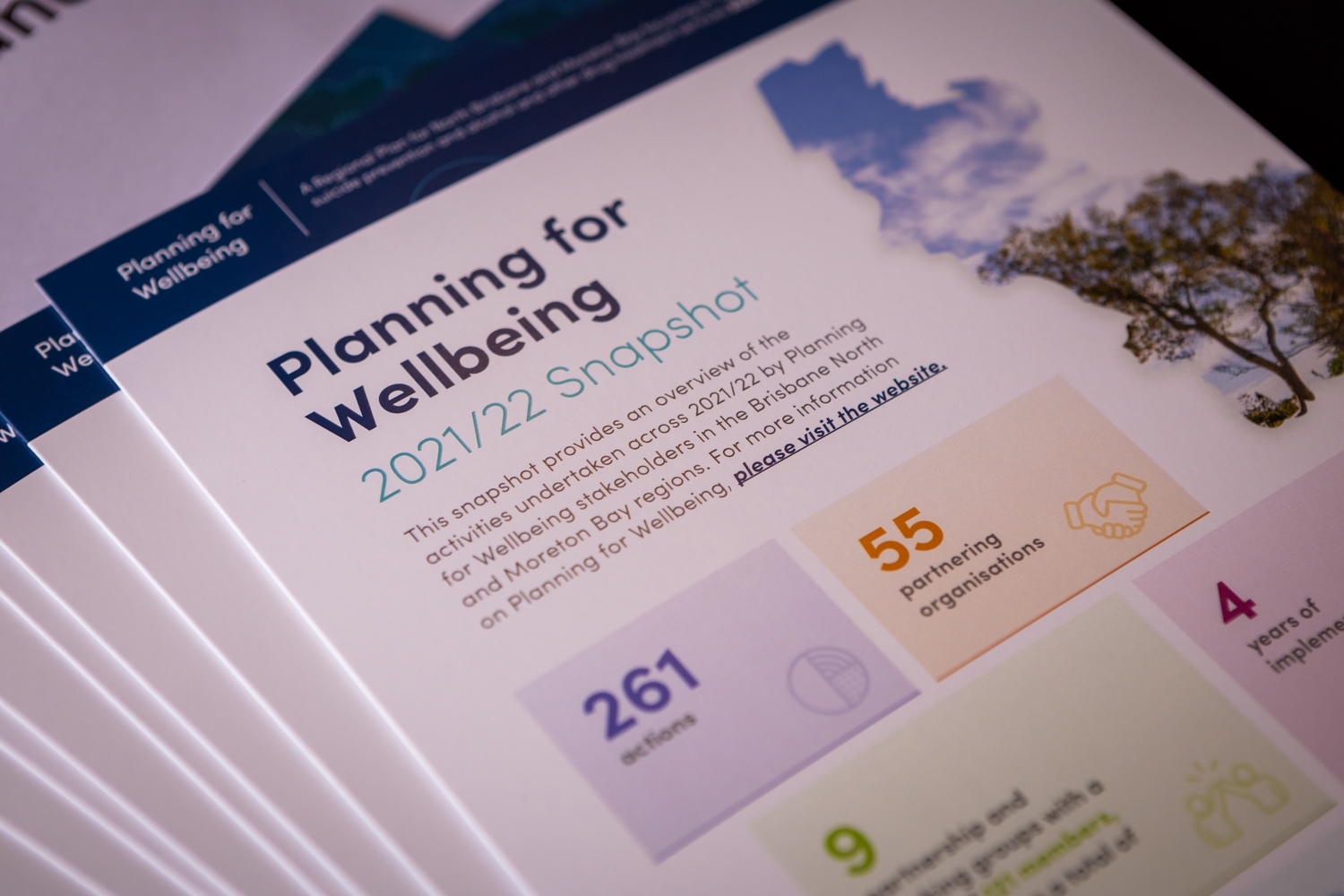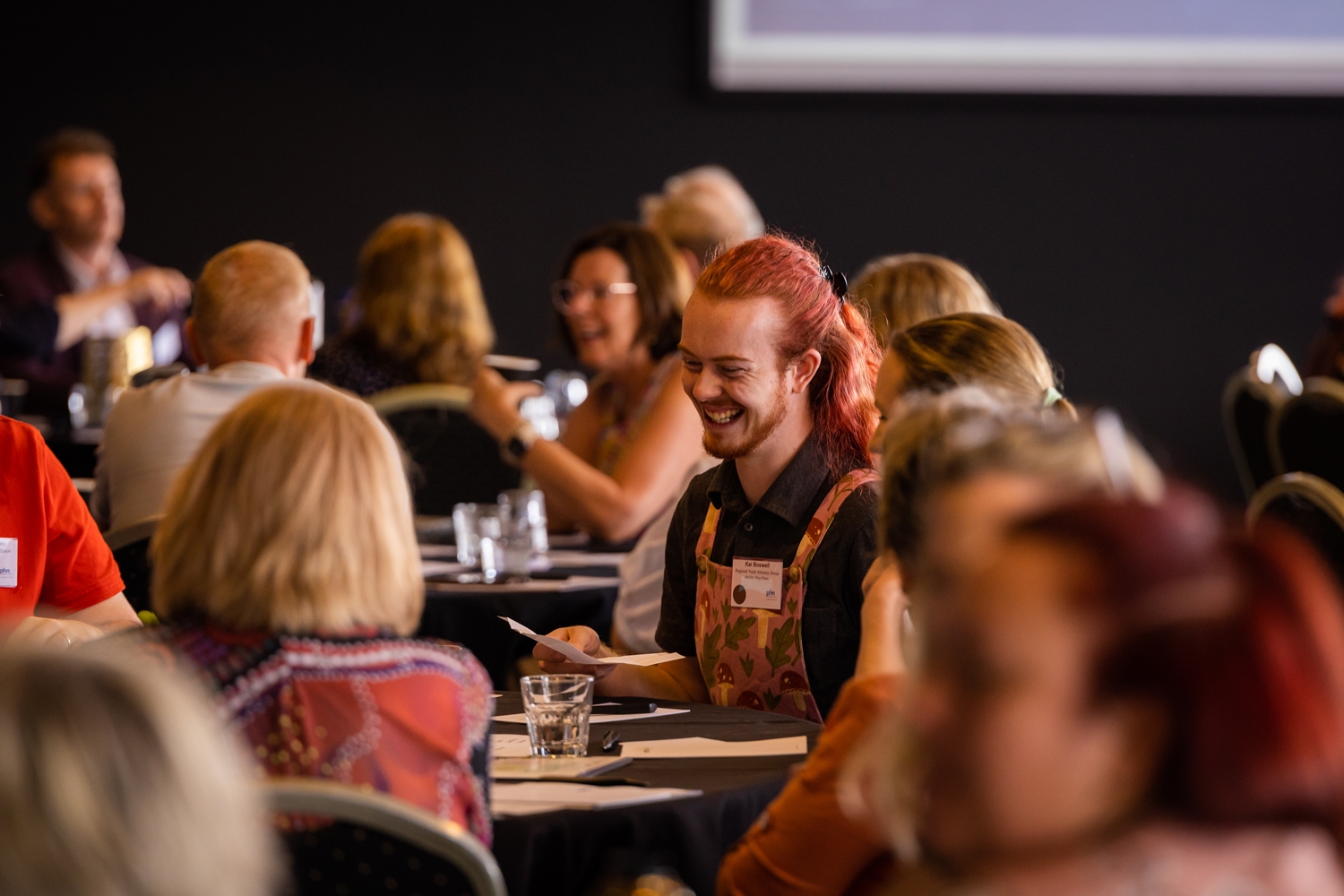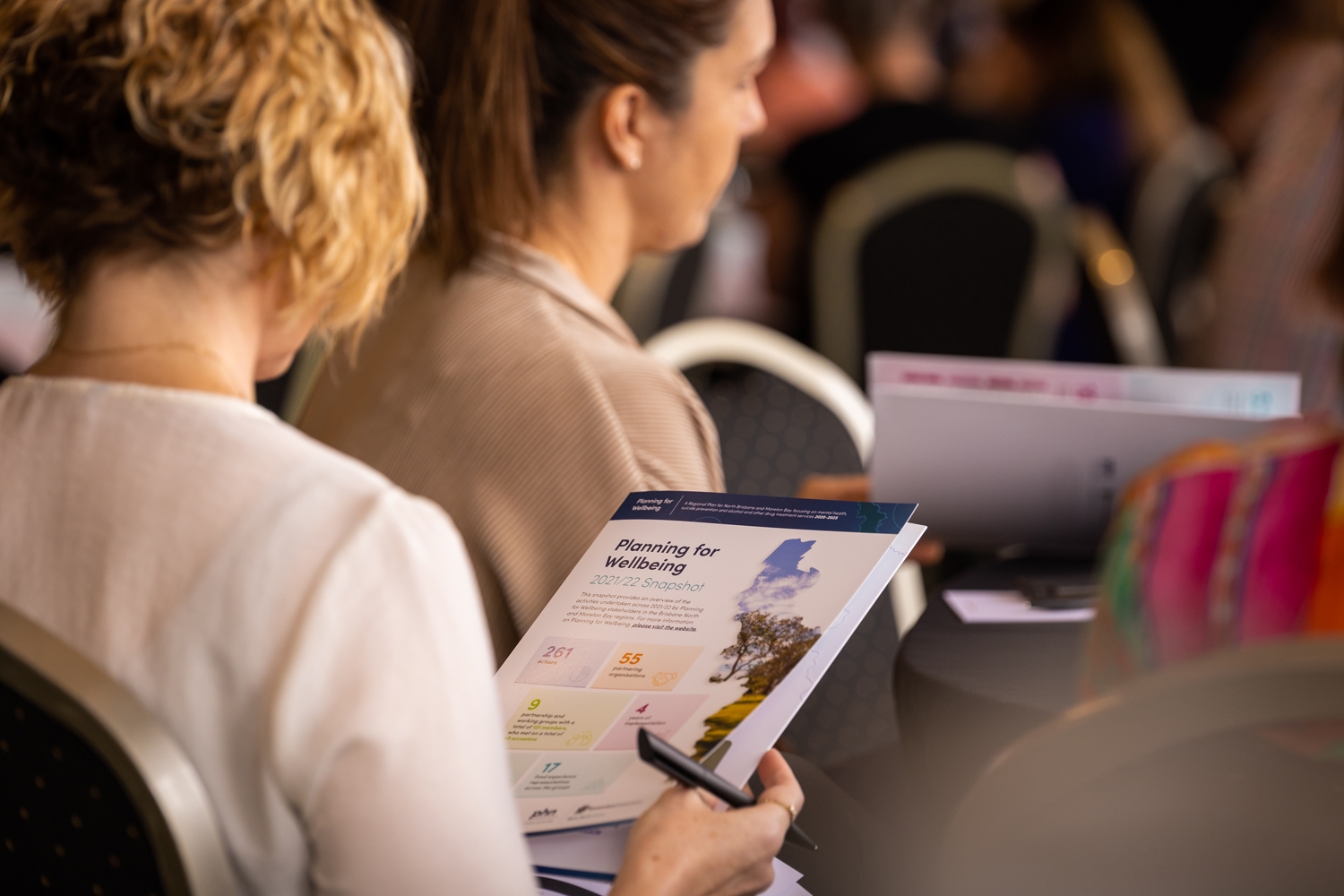Planning for Wellbeing: a human-centred approach to mental healthcare
Mental health, suicide prevention and alcohol and other drugs

A human-centred design approach to regional planning is shaping the new iteration of the North Brisbane and Moreton Bay Joint Comprehensive Regional Plan for Mental Health and Wellbeing – one that is responsive to community feedback, and focuses on increasing connection across our communities and between service providers.

Planning for Wellbeing 2018–2023 comprised a regional plan for North Brisbane and Moreton Bay focusing on mental health, suicide prevention and alcohol and other drug (AOD) treatment services.
Co-sponsored and endorsed by Brisbane North PHN and Metro North Health, the Plan was jointly developed and enacted by vested stakeholders to identify – and subsequently progress – significant opportunities for system reform and service improvement across these three discrete but complimentary sectors.
A fair and inclusive Queensland where all people can achieve positive mental health and wellbeing and live lives with meaning and purpose.
In 2024, the newly formed Mental Health Strategies and Partnerships (MHSP) team began a scope of work to transition our current regional plan, Planning for Wellbeing (PfW), to a Comprehensive Plan due in July 2025. As part of our annual Year in Review 2023–2024, we celebrate the progress made under the PfW model and look towards a future state for mental healthcare in our region – with renewed focus areas that apply comprehensive stakeholder reflections about PfW learnings.

Planning for people-centred wellbeing
Human-centred design involves our stakeholders in every step of regional planning and design.
“By keeping their experiences, challenges and preferences at the heart of the planning process, we hope that our community, our providers and our partners can see themselves in the Plan, and how we can work together to improve mental health and wellbeing outcomes for people living across the North Brisbane and Moreton Bay region,” said Michelle Costello, Mental Health Strategy and Partnerships Manager | Brisbane North PHN.
Using this paradigm and in reflecting with stakeholders, the current regional plan will be evolved from what is a long list of actions and solutions, to a way of working to approach system challenges.
This means approaching those challenges with a quality improvement lens that trials and evaluates small simple innovations, which can then be scaled up across the region if meaningful people-centred outcomes are achieved.
Everything is a system, in which we can look to add value, by using small and simple interventions, with a people-centric approach – rather than expecting to find ready-made solutions to complex problems.
Building on an extensive consultation phase from 2021 to 2023, MHSP have this year conducted a further 45+ consultations, spanning over 360 contacts and including Lived Experience (LE) perspectives to develop the contents, governance structure and actions for the incoming Comprehensive Plan.
From these conversations and contacts, "we learned that our stakeholders felt disconnected from the idea of a static Plan. Stakeholders have stressed the need for better connection within and between community members and service providers. They shared that the joint regional planning function could serve as a collaborative mechanism that connects and fosters region wide quality improvement approaches to innovate and address common challenges," said Michelle Costello.
"We are now scoping what it means to shift from a set plan to a region-wide quality improvement approach that builds agility and flexibility to support complex and real-time emerging needs."
Based on this feedback from voices across grassroots (community, including consumers and LE representatives), service provision, and system (accounting for factors across government, health, education and justice sectors that indirectly impact upon individuals) levels, the Plan will transition away from a format that comprised 15 chapters to a structure that centres around four universal priority focus areas:
- planning and working together
- community awareness and access
- responsiveness to diverse life needs
- workforce and professional support.
Rather than outlining numerous objectives and actions, the new “regional approach” has a renewed focus on our current and desired states, informed by extensive stakeholder consultation and joint regional needs assessment findings.
Quality improvement initiatives and projects (and what is possible within our current “sphere of influence”) are being shaped to help us move closer to this shared desired state.
"No wrong door"
The Plan is currently in the Develop stage of the human-centred design process wherein we continue to ask broad empirical questions of feasibility and ethics to help shape work to come:
- What does our community want and need in the mental health, suicide prevention and AOD space?
- How do we consider intersectionality and the unique health, wellbeing and service needs of AOD, culturally diverse and priority populations?
- In the face of what we currently know – should we? What could happen if we don’t?
"We need the consumer to be at the centre and to be met with services, [instead of always making] consumers come to services.”
Work is continuing to ensure doors are open for those in our communities who need it. Read Brisbane North PHN’s full Year in Review for the full scope of our 2023-24 Mental Health Reform activities.
